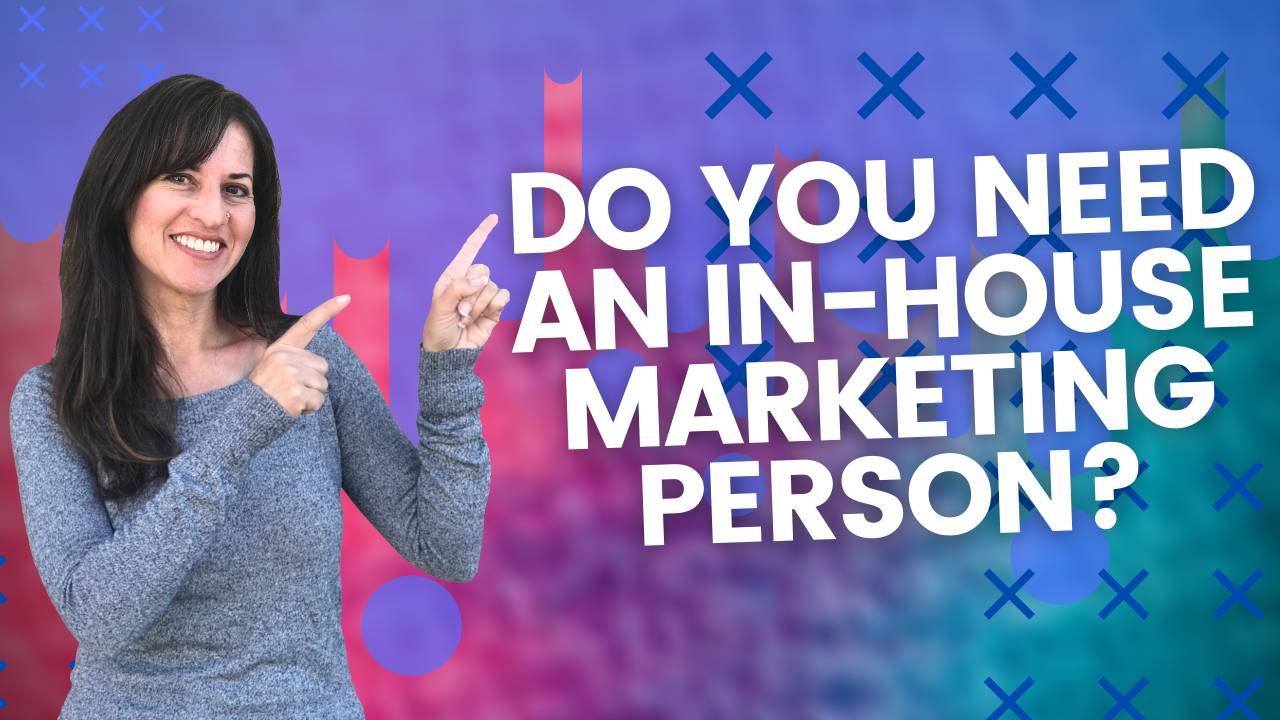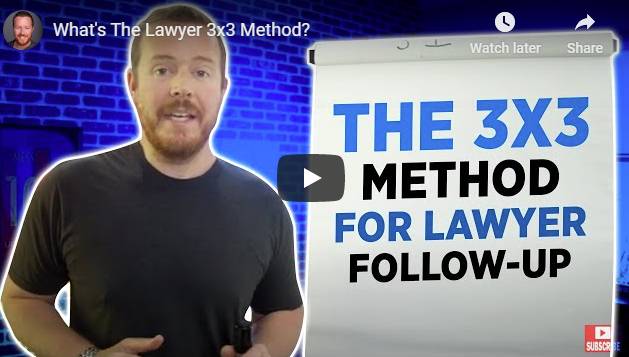LinkedIn is a must for attorneys, and it’s one of the online marketing tools that lawyers seem to resist the least. In fact, it’s hard to discuss online marketing for attorneys and not mention LinkedIn. Known as the “professional network,” the site drives more traffic to attorneys’ websites than all other social media sites combined, for several reasons. LinkedIn is widely considered a trustworthy source of information about professionals and particularly about attorneys and law firms.
Many lawyers routinely include a link to their LinkedIn pages on business cards, emails, and other social media sites such as Twitter and Facebook. According to marketing specialist Colin McLeod of Felahy Law in Los Angeles, “LinkedIn is an important marketing tool that can be invaluable for new attorneys and solo practitioners. It offers distinct advantages in two areas: networking and visibility, and it’s free so there’s no reason not to use it.”
For law firms, says McLeod, “having a company LinkedIn page is important, new hires are going to look at it before they decide whether or not to work with you and clients will look at it as well when researching firms to take their case.” When someone searches your firm name, McLeod says, “it’s almost guaranteed that your LinkedIn, Yelp, and Google Places pages, and possibly other social media, will appear in the top ten search results.”
If you have a good overall marketing strategy and help from a well-established internet marketing company, LinkedIn should be working for you, driving traffic to your website, and helping you convert visitors into clients. No one sees results overnight. Establishing your identity, brand, and voice online or on any particular social media platform takes some patience and time. The key is creating a marketing plan that will be effective, patiently sticking with it, and making minor adjustments as needed. How can attorneys get the most out of LinkedIn?
WHAT DO YOU EXPECT FROM LINKEDIN?
What do you expect from LinkedIn? In other words, if you’re going to be active on LinkedIn, why? Are you primarily seeking new clients, seeking professional contacts, or seeking to establish your brand, voice, and authority? Those aims don’t necessarily conflict, but you must know your own purpose and emphasize it. “Having a robust online presence will make you appear more trustworthy to clients, and more put together to employers,” according to Colin McLeod at Felahy Law. Knowing your purpose helps you decide what goes on your profile, what you share, and who you “link in” with. LinkedIn can help you:
- Learn more about clients, businesses, industries, and the competition.
- Learn about employment opportunities.
- Establish a web presence for yourself independent of your firm’s website.
- Establish your voice as an authority in your niche field.
- Maintain contact with otherwise hard-to-reach connections.
WHO IS YOUR TARGET?
When you’ve decided on your purpose, to a great extent that will determine your target audience. Identify your target audience and the best approach for reaching it. Seeking employment or building your professional network through LinkedIn requires one kind of approach. Expanding your client base requires another approach, and establishing your voice and authority may require a different strategy entirely.
WHAT SHOULD YOU INCLUDE ON LINKEDIN?
Just as your purpose on LinkedIn helps you determine your target audience, knowing both your expectations and your audience will help you create your LinkedIn profile. Use the keywords your audience uses. An established internet marketing company can help you be precise, and if you like, create your LinkedIn profile for you. If you’re going it alone, you can use LinkedIn’s multimedia tool (it’s the square-with-a-plus-sign-icon on the Edit Profile screen) to upload or link to videos, PowerPoint presentations, or PDFs.
What is your ideal target audience looking for in an attorney? If you’re seeking employment, you’ll want a profile that’s strong regarding your responsibilities, experiences, education and qualifications, and achievements. On the other hand, if you have roots in a community, and you want to expand the client base of your modest family law practice, you’ll probably want a section in your LinkedIn profile that focuses on your volunteer activities and your contributions to the community.
If you’re an immigration attorney, or if you are primarily serving a particular ethnic community and you speak more than one language, that’s important to include. Do your clients or employers expect you to belong to particular organizations? If so, list your pertinent memberships. Are you committed to working in one city or community, or is your practice regional or even wider? It’s important to include the jurisdictions where you currently practice and where you’re willing and able to work and take on clients.
The title and headline below your name should immediately tell visitors that you are an attorney who is worth a closer look. Be as precise as you can when writing your headline, and include your practice area in the headline. An internet marketing company’s professional marketing writer can provide help if you need it. Make sure that you’ve included the proper email addresses, street addresses, and telephone numbers so that people are able to reach you. That’s why you’re on LinkedIn.
HOW CAN ATTORNEYS “BUILD A NETWORK” ON LINKEDIN?
When your profile is complete and posted to LinkedIn, it’s time to take advantage of what the site offers – and what it offers is connections. LinkedIn can help you find the people you want to meet and the names of people in key organizational positions – even names not listed on that organization’s own website. LinkedIn’s Advanced Search lets you search companies by name, size, industry, and location. LinkedIn Company Pages can tell you if anyone in your LinkedIn network already works there. Even if you’re not actively marketing yourself, you should be taking advantage of the tremendous informational resources that LinkedIn provides.
Connecting first with the people you already know is probably the best way to begin building a LinkedIn network. Make an invitation to connect on LinkedIn a regular part of your follow-up procedure. When you send the invitation from LinkedIn, make it personalized – the standard “I’d like to add you to my professional network on LinkedIn” is impersonal. Just a brief personal note is a good invitation.
WHAT IS THE REAL VALUE OF LINKEDIN?
Over time, you’ll probably need to make some minor edits and adjustments, but the real value of LinkedIn is the groups, group discussions, and the sharing, liking, and commenting on everyone’s posts and updates. Effective participation doesn’t have to devour your time – about an hour a month is probably right for most attorneys – but obviously, the more time you spend on LinkedIn, the more benefits you’ll reap.
Begin joining LinkedIn “Groups” by looking for groups you’re already in – your alumni group and local bar association, for example. After you’ve joined some groups and start getting comfortable with LinkedIn, don’t forget your original intention – the reason you’re there. You want to connect with your intended audience for your primary purpose, but it’s easy to get distracted by the multitude of groups and discussions. When you find a group with members that correspond to your own target audience, participate actively, but don’t forget your purpose for being there.
Ninh Tran, the CMO and co-founder of Hiretual, a sourcing platform for employment recruiters, summarizes the ways that attorneys can take advantage of LinkedIn. Tran says, “Polish your LinkedIn profile and brand of your company. Lawyers are often the faces and voices of their companies and having an ‘all-star’ LinkedIn profile might just make or break the deal when someone is researching whether to be your client or not. If someone is referring you, a LinkedIn profile is like your digital business card. Feature a portfolio of successful cases you have worked on, or describe the cases you have worked on without mentioning anything confidential.”
Tran further encourages attorneys: “Become an influence on LinkedIn by writing and sharing your expertise on different topics that fall within your practice. It’s a perfect opportunity to build trust for your future clients, who want to know that you a real expert by recognizing you as a thought leader. Post on LinkedIn. Discuss the latest cases, or controversies on the legal plane in a way that relates to your target audience. Killer articles on LinkedIn get thousands of shares and re-shares, and that’s where your business will come from.”
LinkedIn has and offers so much – we’ve only scratched the surface here. But like so much in life, the best way to learn something is simply to do it. If you are an attorney, and you’re not on LinkedIn, you need to be there. If you’re on LinkedIn but you’re not taking advantage of it, reconsider your profile and your approach. Don’t hesitate to seek the insights and help of an established internet marketing company. The right internet marketing professionals can answer your questions about LinkedIn and provide all of the online marketing help you want or need.












